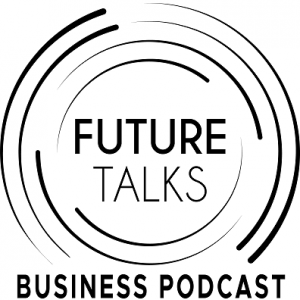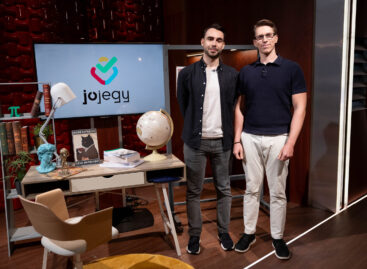Krisztina Máté: “You can’t make up for the important things afterwards”
Trade magazine’s Business Podcast continues
Krisztina Máté, producer of the business-themed television show “Cápák között” (Shark Tank), was Szilvia Krizsó’s guest in the latest episode of the Future Talks podcast. This article features excerpts from their conversation, but you can watch the full interview at futuretalks.hu

This article is available for reading in Trade magazin 2024/6-7
– Your first business-themed show was My First Million, where you talked to businessmen about how they had made their first million. How did you get your first million?
– I have worked very hard from a very young age. Money was never an issue for me. If I like something, I even go into debt for it. It is really more love than some kind financial consideration. If you think I live like a Hollywood producer, you are wrong. This is just a television job, which is done in the background.

Krisztina Máté, producer of “Cápák között” business show
– Why did you become the producer of “Cápák között”?
– I really think that Hungary’s business culture should be influenced somehow, in a way that the term entrepreneur won’t be a curse word anymore, and the public perception won’t be that you can only do business in Hungary by double-crossing others and cheating on your taxes.
– You have said many times in many places that it never occurred to you that the show could be so successful. What is the secret? Is this what people are hungry for now?
– This is so hard because I don’t know. I do know that I think it is good to belong to this club. If you watch the show, it isn’t embarrassing to admit it to other people, because you learn things while you are watching it, it is interesting what happens, you don’t see the characters that appear on other shows, and it is nice to see civilians in a natural situation.
– If you were told that “Cápák között” is over, what would you do?
– I do so many things at once. We have started a business with Lilu, called Liluland, which is our love child. She is the face of it but I help her from the background, using the knowledge I have picked up. Plus I teach, manage the lives of my two athlete children who compete regularly.
– When I say the future, does that word evoke any emotion or thought in you – whether positive or negative – or is it just a word?
– If I want to answer honestly, it is just a word, as somehow I am always in the present. Mainly because I don’t really know how to plan. So much is unknown around us right now and there is nothing to make long-term plans from. What is important is how our lives are at the moment.

“It’s important how we live in the moment”
– How common is it in the business world that family is important?
– I believe it depends on whether one wants it. You can’t make up for the important things afterwards. My children have grown up and soon they will leave. Then I can live for my own desires. I think a lot of people don’t have a good work-life balance. I don’t know if I have found the right balance.
– How do you feel about success, Kriszta?
– It is very hard to give a good answer to this question, because whatever I say can sound pretentious. I have had relatively many successes and you get used to small successes. I am very bad at celebrating my own success, I would rather move on to the next task. //
Related news
Related news
New country director at the helm of JYSK Hungary
🎧 Hallgasd a cikket: Lejátszás Szünet Folytatás Leállítás Nyelv: Auto…
Read more >








